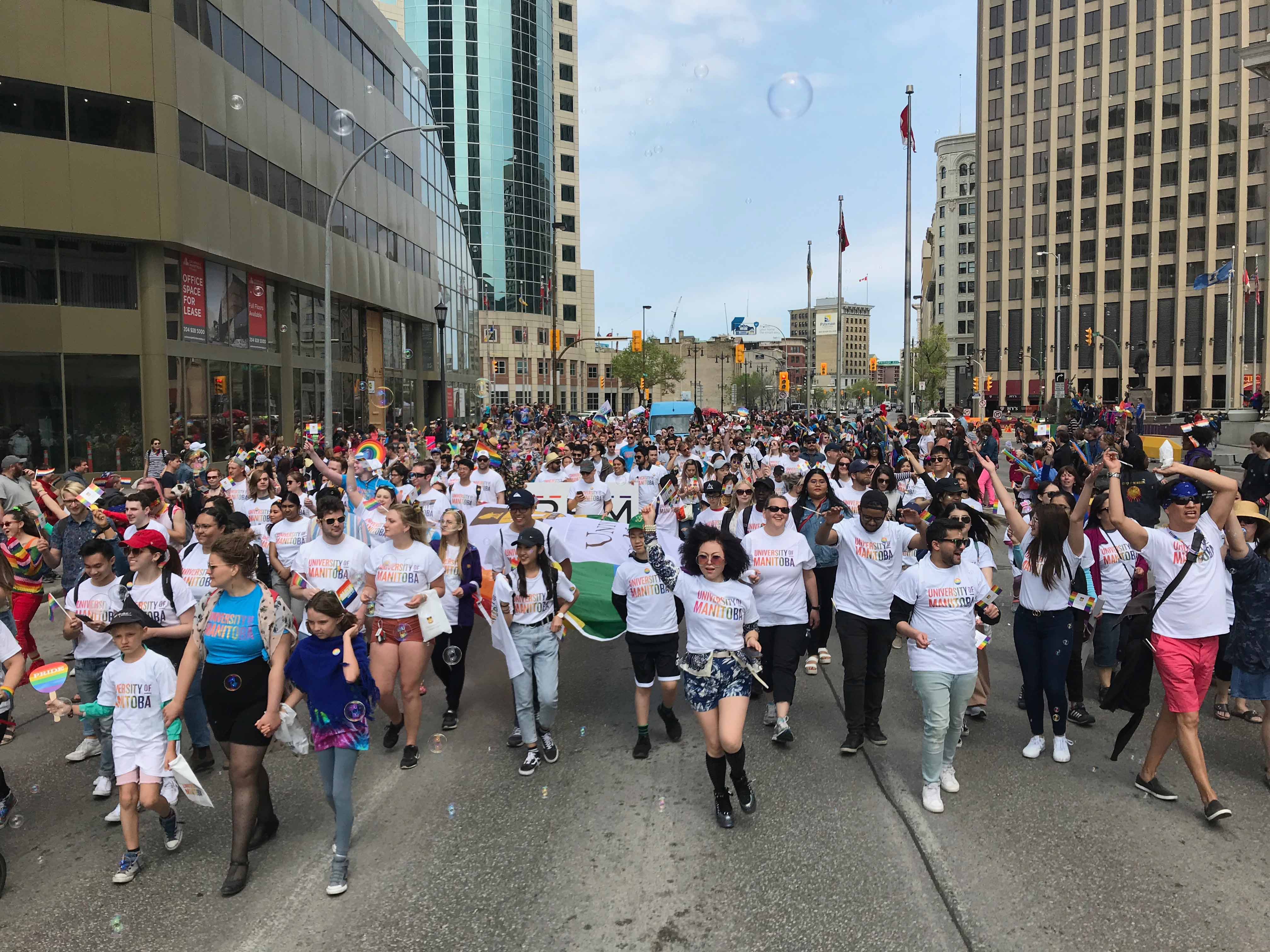In a time where people are instructed to stay at home, isolation can have an impact on an individual’s mental health.
On Oct. 7, students, professors and community members came together to join in an online discussion titled “Being Queer in the time of COVID-19,” where many already feel the consequences that come with distance from community.
The discussion was hosted over Zoom by UMQueer, the Rady faculty of health sciences and the office of equity, diversity and inclusion (EDI).
Elizabeth Caslake, project developer and representative for social responsibility in the office of EDI, said the idea for the discussion came from her own feelings of isolation from the community during the pandemic.
“There was a need that I had personally, and our thought was, ‘Well, maybe somebody else has the same need,’” Caslake said.
The goal of the discussion — which was facilitated by Caslake along with faculty members, EDI director Jackie Gruber and EDI co-ordinator Funmi Owoade — was to provide a space for individuals in the LGBTTQ* community to talk about how COVID-19 has affected them and if their experiences had made life harder.
Another discussion topic asked the question, “How can [the community] help each other in this difficult time?”
Before the beginning of the discussion, Caslake emphasized the importance of creating and maintaining a safe space throughout the hour.
She also emphasized “conversation-based learning.”
“Let’s keep talking, push yourself and get outside your comfort zone if you can. That’s how we’re going to learn and support each other,” she said.
Caslake commended the efforts in equity, diversity and inclusion at the U of M.
Last September, she was the first transgender person to ever be appointed to the admissions committee in the Max Rady college of medicine.
“Our experience is special at the university and in health-care education,”she said.
Working in EDI positions in the faculty of health sciences has given Caslake the opportunity to put LGBTTQ* initiatives at the attention of the university.
She said the community has “health-care needs, physical and mental, that are not being met.” As members of the community discuss the needs they have, they are able to “press the university to fill those needs.”
Caslake said the participation level in this discussion “exceeded [her] expectations.”
“The importance is that we talk to each other,” she said.
“If I’m sitting here by myself and I never share the good, the bad and the ugly of my life with someone else who is at least interested, or maybe going through the same thing, then I have no common ground with anybody, and it takes me back to when I was in my early twenties […] and I thought, ‘I’m the only person. There’s nobody else out there like me.’
“And it took a long time to figure out, if I just talked to other people, there’s lots of people like me out there.”



